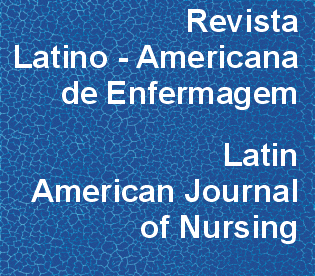Movimientos de la educación permanente en salud desencadenados a partir de la formación de facilitadores
DOI:
https://doi.org/10.1590/S0104-11692011000200025Palabras clave:
Educación, Política de Salud, Formación de Recursos HumanosResumen
Se tuvo por objetivo cartografiar los movimientos de educación permanente en salud, en la región de Araraquara, Sao Paulo, Brasil, iniciados a partir del curso de Facilitadores de Educación Permanente en Salud, del Ministerio de la Salud y Escuela Nacional de Salud Pública. Es un estudio de abordaje cualitativo, sustentado por el referencial teórico del análisis institucional en la línea esquizoanalítica, siendo los datos recolectados mediante grupos operativos con alumnos terminando el referido curso. Los resultados fueron agrupados en dos planos: micropolítica y organización. Con relación a la micropolítica, apuntan que hubo producción de diferentes conceptos sobre educación permanente y diferentes formas de institucionalización de la misma. En el plano de la organización se destacan la autonomía y el control y también la tenue relación entre tutela y autonomía. Concluimos que el curso fue un importante dispositivo que sufrió capturas, pero también produjo cambios en las prácticas.Descargas
Los datos de descarga aún no están disponibles.
Descargas
Publicado
2011-04-01
Número
Sección
Artículos Originales
Licencia
Los derechos de autor son propiedad exclusiva de la Revista Latino-Americana de Enfermagem (RLAE), transferidos a través de la Declaración de Transferencia de Derechos de autor (que está en el formulario individual de declaración) firmada por los autores. Para el uso de artículos, RLAE adopta la Licencia Creative Commons CC BY-NC atribución no comercial (abstracto o código completo de licencia). Con esta licencia es permitido acceder, descargar (download), copiar, imprimir, compartir, reutilizar y distribuir los artículos, desde que para uso no comercial y con citación de la fuente, dando los créditos de autor a la Revista Latino-Americana de Enfermagem. En tales casos, no se necesita permiso de los autores o editores.Cómo citar
Fortuna, C. M., Franceschini, T. R. da C., Mishima, S. M., Matumoto, S., & Pereira, M. J. B. (2011). Movimientos de la educación permanente en salud desencadenados a partir de la formación de facilitadores . Revista Latino-Americana De Enfermagem, 19(2), 411-420. https://doi.org/10.1590/S0104-11692011000200025



